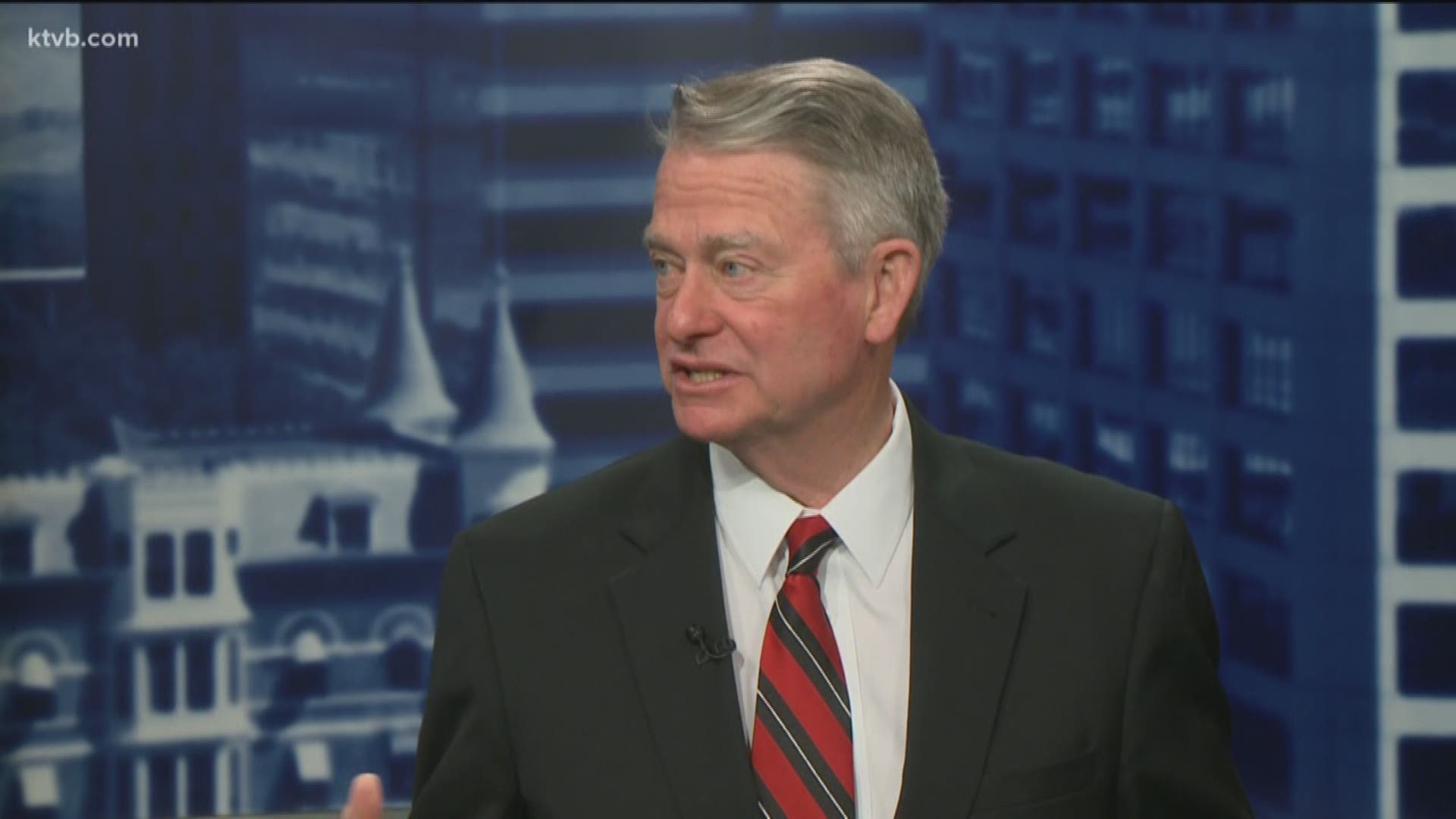BOISE, Idaho — Idaho Gov. Brad Little is marking his first 100 days in office this week and looking back on a 2019 legislative session that was productive, but also contentious and controversial on some big issues.
At 95 days, this session was the third longest in Idaho's history.
The governor sat down with our Doug Petcash to talk about Medicaid expansion, his veto of bills that would have made it much more difficult to get citizen initiatives on the ballot, teacher pay and other issues that did and didn't get through the Legislature.
“So, does it in anyway surprise you that the session lasted this long and became the third longest in history with the issues that were on the table?” Petcash asked.
"Yes!" Little answered. "It did surprise me."
Little says that's because of the debate over Medicaid expansion.
"I knew there was going to be a big discussion on it, but I just thought it wouldn't take quite as long," Little said.
In the end, the governor signed a bill to expand Medicaid for about 90,000 low-income Idahoans. The controversial part is that it adds work and other requirements.
The governor expressed concerns about possibly costly lawsuits over the work requirements and increased administrative costs. The state has to seek a federal waiver for the work requirements.
"I'm hopeful that by next January when all this is implemented the Legislature will be back here and we will know a lot more. We'll know what waivers other states have been granted,” Little said. "We'll know what waiver we'll be granted. We'll know what works."
Little wants lawmakers to keep working on the plan.
He wielded his veto power on two bills that would have made it much more difficult for citizens to get initiatives on the ballot for voters to decide.
‘I was 80 percent confident it would be struck down by the courts,” Little said.
"Do you think that those requirements do need to be a little more stringent?" Petcash asked.
"I'm open to them. I just don't want it to be impossible," Little answered.
Little also says he won't call a special session to resolve a dispute between the House and Senate over administrative rules.
Those 8,000 plus rules govern everything from how elk and deer tags are allocated to operation of state veterans’ homes to qualifications for doctors practicing in Idaho.
The two chambers failed to approve the rules for next fiscal year, so the governor has to take action.
"The effective date is the first of July so between now and the first of July, I as the governor will propose new temporary rules to just extend all the rules that are out there," Little said.
Education issues were not contentious this year.
Lawmakers boosted overall public education funding, including doubling the funding to $26 million a year for programs to improve the reading skills of kindergarten through third grade students.
"We've got to get these kids reading proficiently by the end of the third grade," Little said.
And boosting teacher pay, including raising the minimum pay for starting teachers to $40,000 a year.
"I wanted to send that signal to the young people thinking about going into the education field that we value them in Idaho and we want them to teach right here in Idaho." Little said.
Two things that didn't happen this year.
Bills to legalize hemp production and transportation in Idaho failed in the Legislature.
"I don't have any problem with hemp," Little said. "My issue with hemp is if it's used as camouflage for recreational marijuana."
Also, the governor's proposal to create first-time home buyers savings accounts didn't get out of committee. The program would allow people to save for their first home with a pre-tax savings account.
"Because it was a tax bill the unintended consequences are what the Legislature was concerned about," Little said.
"Are you going to keep pushing for that?" Petcash asked.
"Yes," Little answered.
Little says he wants the Legislature to take a look at eliminating the grocery tax next session.
He also expects education funding and Medicaid expansion to once again be big issues in 2020.
You can watch Doug's full interview with the governor this Sunday morning at 6:30 on Viewpoint on Channel 7.
Watch more Viewpoint:
See them all in our YouTube playlist here:

